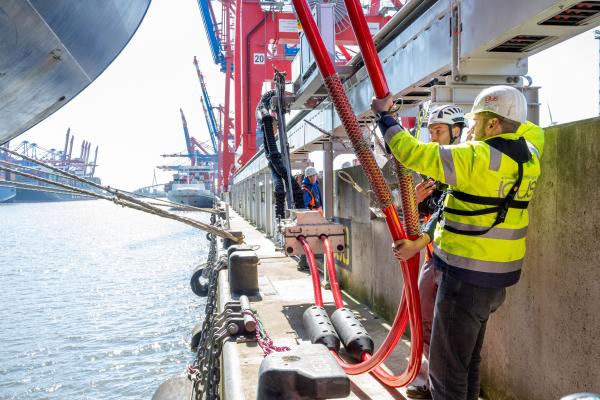Project summary
Reducing pollution from ships is a key part of the European Commission’s “Fit for 55” package, which targets a 55% reduction in greenhouse gas emissions by 2030. Though often overlooked, maritime transport plays a significant role in EU emissions and is now under increasing pressure to become more sustainable.
To support this transition, the EU is introducing key regulations aimed at making shipping cleaner:
- FuelEU Maritime Regulation: promotes the use of renewable and low-carbon fuels in shipping
- AFIR Directive (Alternative Fuels Infrastructure Regulation): requires ports across the EU to install clean energy infrastructure— such as Onshore Power Supply (OPS)
OPS, also called Shore-Side Electricity (SSE), allows ships to plug into the grid while at berth, instead of burning fossil fuels. Starting in 2030, many EU ports will be obliged to offer this cleaner energy alternative.
But rolling out OPS on a large scale comes with real challenges:
- OPS is still new and often costly, especially for ports needing significant upgrades
- A major hurdle is grid capacity—ensuring there’s enough electricity to power berthed ships. This is not just a port-level issue but a national infrastructure challenge. Ports often rely on regional or national grids, which may need expansion to meet OPS demand
- Fossil fuels remain cheaper than electricity, discouraging voluntary use of shore power by ship operators
This is where the BREEZE project steps in.
BREEZE brings together 9 partners from 8 European countries to support the accelerated rollout and usage of OPS across Europe — well ahead of the 2030 requirement. It aims to improve conditions for a cleaner, more resilient maritime sector.
What BREEZE Does:
- Shares experiences and good practices across regions through workshops, site visits, and round-table discussions
- Studies technical and economic solutions for deploying and operating OPS infrastructure
- Explores policies and financial tools to make electricity more attractive compared to fossil fuels
- Improves existing European Regional Development Fund (ERDF) policy instruments and helps shape future policies for cleaner ports
By fostering collaboration among port authorities, energy providers, and policymakers, BREEZE helps lay the groundwork for a future where clean energy becomes standard in European ports. The goal: reduce emissions from ships at berth, and make ports more sustainable — well ahead of the upcoming EU mandates.
